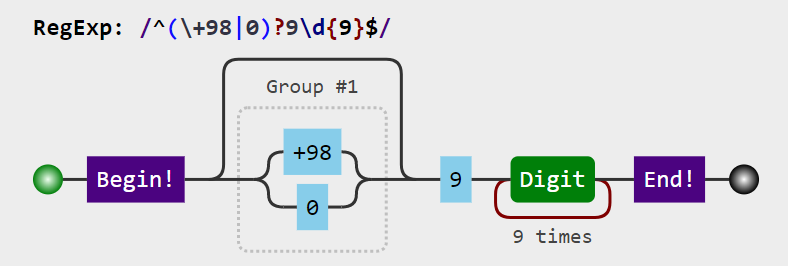This content from this markdown file has moved a new, happier home where it can serve more people. Please check it out : https://docs.microsoft.com/azure/azure-cache-for-redis/cache-best-practices.
This file contains hidden or bidirectional Unicode text that may be interpreted or compiled differently than what appears below. To review, open the file in an editor that reveals hidden Unicode characters.
Learn more about bidirectional Unicode characters
| /* | |
| The absence of the C# unsafe keyword and switch does not guarantee code | |
| is type or memory safe. It merely prevents the use of pointer types and | |
| fixed size buffers. | |
| The only thing that can guarantee type and memory safety is | |
| verification and CAS/transparency enforcement. | |
| In particular, the absence of unsafe C# blocks does NOT: |
This file contains hidden or bidirectional Unicode text that may be interpreted or compiled differently than what appears below. To review, open the file in an editor that reveals hidden Unicode characters.
Learn more about bidirectional Unicode characters
| public static class IQueryableExtensions | |
| { | |
| private static readonly TypeInfo QueryCompilerTypeInfo = typeof(QueryCompiler).GetTypeInfo(); | |
| private static readonly FieldInfo QueryCompilerField = typeof(EntityQueryProvider).GetTypeInfo().DeclaredFields.First(x => x.Name == "_queryCompiler"); | |
| private static readonly PropertyInfo NodeTypeProviderField = QueryCompilerTypeInfo.DeclaredProperties.Single(x => x.Name == "NodeTypeProvider"); | |
| private static readonly MethodInfo CreateQueryParserMethod = QueryCompilerTypeInfo.DeclaredMethods.First(x => x.Name == "CreateQueryParser"); |
This file contains hidden or bidirectional Unicode text that may be interpreted or compiled differently than what appears below. To review, open the file in an editor that reveals hidden Unicode characters.
Learn more about bidirectional Unicode characters
| #!/bin/bash | |
| # This script connects the computer to a vpn server using openconnect without pain | |
| prog_name=$(basename $0) | |
| # CHANGE YOUR_VPN_SERVER_DOMAIN to the VPN server you know like example.com | |
| domain=YOUR_VPN_SERVER_DOMAIN | |
| function help { |
This file contains hidden or bidirectional Unicode text that may be interpreted or compiled differently than what appears below. To review, open the file in an editor that reveals hidden Unicode characters.
Learn more about bidirectional Unicode characters
| # The folders below will be cached between builds | |
| # http://docs.gitlab.com/ce/ci/yaml/README.html#cache | |
| cache: | |
| paths: | |
| - node_modules/ | |
| - _site # or other arbitrary directory | |
| stages: | |
| - build | |
| - test |
The following Constrains checks the data type :
| Constraint | Inline | Class | Description |
|---|---|---|---|
| int | {id:int} |
IntRouteConstraint | Constrains a route parameter to represent only 32-bit integer values |
| alpha | {id:alpha} |
AlphaRouteConstraint | Constrains a route parameter to contain only lowercase or uppercase letters A through Z in the English alphabet. |
| bool | {id:bool} |
BoolRouteConstraint | Constrains a route parameter to represent only Boolean values. |
Application Observability in Kubernetes with Datadog APM and Logging - A simple and actionable example
Last year I shared an example on how to realize application tracing in Kuberntes with Istio and Jaeger. After that, the industry has made some substantial headway on this front and we are seeing more vendor support as a result. At Buffer, since we primarily use Datadog for Kubernetes and application monitoring, it's only fitting to complete the circle with Datadog APM and Logging. I had a chance to create a small example for the team and would very much love to share with the community.
Okay, without further ado, let's dive in!
First thing first, in order to collect metrics and logs from Kubernetes an Datadog agent has to be installed in the cluster. The Datadog team ma
This file contains hidden or bidirectional Unicode text that may be interpreted or compiled differently than what appears below. To review, open the file in an editor that reveals hidden Unicode characters.
Learn more about bidirectional Unicode characters
| using Microsoft.AspNetCore.Hosting; | |
| using Microsoft.AspNetCore.Builder; | |
| using Microsoft.AspNetCore.Http; | |
| using Microsoft.Extensions.Hosting; | |
| public class Program | |
| { | |
| public static void Main(string[] args) => | |
| Host.CreateDefaultBuilder(args) | |
| .ConfigureWebHostDefaults(webBuilder => |
OlderNewer
